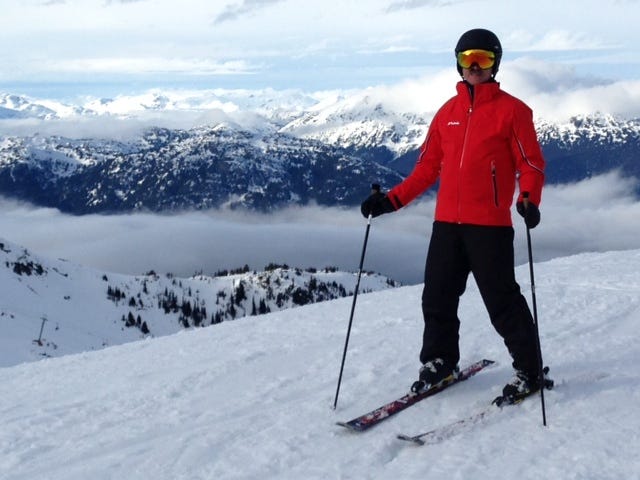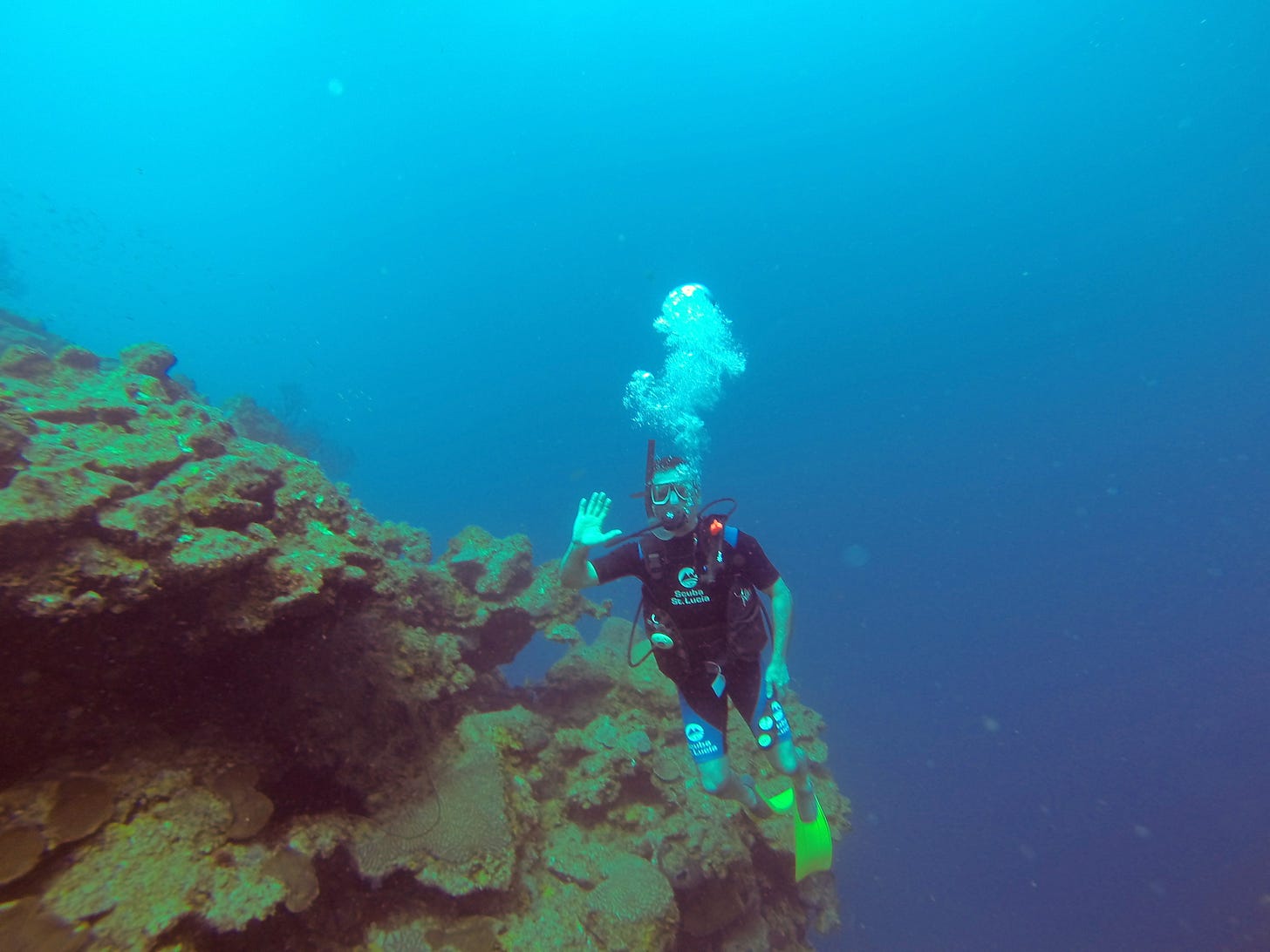The Reach Out: Chris Hadfield
The decorated astronaut loves to row, ski, run, and water-ski, but which activity is he still eager to try?
Colonel Chris Hadfield is a highly regarded astronaut, engineer, military fighter/test pilot, and former NASA director of operations. He has flown three space missions, built two space stations, performed two spacewalks, and crewed the Shuttle and Soyuz. He was named the commander of the International Space Station for six months off planet in 2013.
He has been awarded the Order of Canada, the Meritorious Service Cross, and the NASA Exceptional Service Medal. He was named the Top Test Pilot in both the US Air Force and the US Navy, and was inducted into Canada’s Aviation Hall of Fame.
Hadfield’s books include An Astronaut’s Guide to Life on Earth; You Are Here; The Darkest Dark; and his first fiction novel, The Apollo Murders, a thriller set in space.
Hadfield released a music album, Space Sessions: Songs From a Tin Can, and his TED talk, “What I Learned from Going Blind in Space,” has been viewed over 11 million times.
Hadfield is the co-creator and host of the internationally acclaimed BBC series Astronauts: Do You Have What It Takes?, as well as the co-host, with actor Will Smith, of National Geographic’s One Strange Rock.
He also produces the Rare Earth series on YouTube and is the creator of the on-stage celebration Generator, which combines science, comedy, and music.
I spoke with Chris Hadfield about why exercise and fitness is so important to him.
How do you make being active a part of your life?
You only get one body, and our bodies are biological machines. You put raw material into it, your body processes it, you make demands on it, and your body responds accordingly. So I try to think about what I eat and about the exercise that I get every day. I want to have as healthy a mind and body to be able to support all the things that I do for as long as possible. That's what governs my decisions.
My wife reminded me that you get strong in the gym, but you lose weight in the kitchen. So I recognize that exercise is cardiovascular and musculoskeletal, but if it's weight that I'm concerned about, I need to eat appropriately.
Do you have a specific exercise routine?
I try to do things that are affordable and that don't require a time-driven or location-driven routine. I think you have to do something that adapts to your particular lifestyle and this changes over time. So I always try to take the harder path in order to get as much free exercise as I can.
For example, if I can stand or sit, I stand. If I have the option of an escalator or stairs, I take the stairs. If I do have to take an escalator, I will walk on the escalator. I don’t default to the easy mode of transport. I have a busy life, so I try to get regular physical activity wherever I can while still accomplishing what I'm trying to do.
As for a routine, I always do twenty push-ups before every shower, and when I get out of the shower, I stand on one foot, which is good for balance.
At home, I use a rowing machine and I walk the dog at least once every day. I think a walk in the forest is immensely healthy for the body, both physically — the clean forest air — and mentally.
When we’re at our cabin in the summer, I will run and water-ski. I used to water-ski quite competitively. Water-skiing is a really great full-body, heavy physical exercise.
In the winter, I like to ski. I'm currently writing my next book, but rather than sit at my house in Toronto, I’m renting a place at a ski hill. So now I wake up, work and write in the morning, and then ski for two or three hours in the afternoon.
Has your exercise routine changed because of the pandemic?
I’ve been travelling less, so my routine hasn’t been disrupted as much. Changing time zones constantly, getting up at two in the morning, not sleeping well on an airplane or in a new location — that’s all very hard on the body. So I’ve been able to sleep in my own bed for much longer periods than I ever have, and been able to use the rowing machine regularly.
Last summer, because I wasn’t travelling, I water-skied 90 mornings in a row. So while there are huge downsides to the pandemic, it has certainly regularized my exercise regimen.
It doesn’t sound like you need any reminders to move. Do you wear a fitness tracker or an Apple watch?
I don't, although when I’m skiing, the hill has one of those things that will track how many runs you’ve done, which is kind of fun, but that’s mainly for bragging rights.
A lot of people exercise better when they have a trainer or a virtual trainer, or if they're part of a Peloton class, where there's an external impetus to exercise. I'm not one of those people. I don't need it. Just one look in the mirror and one quick internal inventory check, and I know if I need to sharpen things up a little bit.
How different is your exercise routine when you're in space?
On Earth, because you have to hold your head and body up, you're constantly weightlifting. In contrast, being weightless in space is the laziest existence — you don’t have to lift a finger. When you do exercise, it has to be deliberate. Over the last few decades, as our understanding of human physiology and weightlessness has improved, we’ve built resistive equipment to get our exercise.
We have three main pieces of equipment on the International Space Station. One is a stationary bicycle, which obviously doesn't need a seat because you don't have to sit down. It works great as a cardiovascular workout.
We also have a treadmill that has big bungee elastics and a harness which go around our shoulders and hips, holding us down so that we can run. This allows for a great cardiovascular and musculoskeletal impact.
The last one is a resistive exercise machine — sort of like a Bowflex — which is used like any stationary exercise resistance device for calves, squats, back, etc.
We’ve learned over the years that you need to exercise two hours a day on these pieces of equipment, seven days a week, in order to stay healthy in space. Exercise sessions in space are longer than they might be on Earth because you have to choose every second that you exercise, and it turns out that two hours each day is about right.
When I came back from space, I was 20% stronger than when I left because of both exercising two hours a day and a really good diet — no fatty foods, no beer, no fried foods. However, my balance system was shot, and I’d lost bone density, both of which took a long time to recover from.
You speak frequently to kids and teens. How do you think we can encourage them to be more active?
Number one, I think, is setting a good example. If kids see regularly that the other people in the household are regularly physically active, then there's a pretty good chance they will model themselves after that.
The second is to try to get kids involved with peer groups that are physically active. Our kids were signed up for T-ball teams, baseball teams, soccer teams, and swim teams. It became part of their lifelong patterns.
I also think it's good to have individual skills because there aren't always sports teams to join. So it's good to learn to go for walks or play a sport that doesn't require a lot of overhead. There’s always a tennis court or park around to do that.
Parents should encourage their kids no matter what. Even though your kid is probably not going to win a gold medal at the Olympics, try to get them into a regular pattern of physical activity so that as an adult, they’ll make the right choices.
Is there a sport or activity that you think you’d like to try?
Yeah, I'd like to try kite surfing. I’ve done a little bit of wind surfing and I know how to sail, but being pulled by a kite parallel to the shore looks like a lot of fun to me. There's a lot of danger there, so that's maybe part of the reason I haven't done it yet, but I like understanding how to control large forces and speeds. It’s why I was a downhill ski racer and what I really enjoyed about being a fighter pilot and astronaut. So if the opportunity comes up, I might give it a try.
Any final words of exercise-related encouragement?
A really important part of fitness is to be kind to yourself, and to forgive yourself for maybe not having had a perfect day. Recognize that, hey, I can try again tomorrow.
Thank you @Cmdr_Hadfield
Please subscribe (it’s free!) to read about how other familiar faces keep fit active and fit.
If you enjoyed this interview, please share it.😀
Please follow me on Twitter @The_Reach_Out
https://twitter.com/The_Reach_Out








Great article and insights. Hatfield spoke at a leadership event at my last company and he was very inspiring.
20 push-ups before the shower is a good idea.